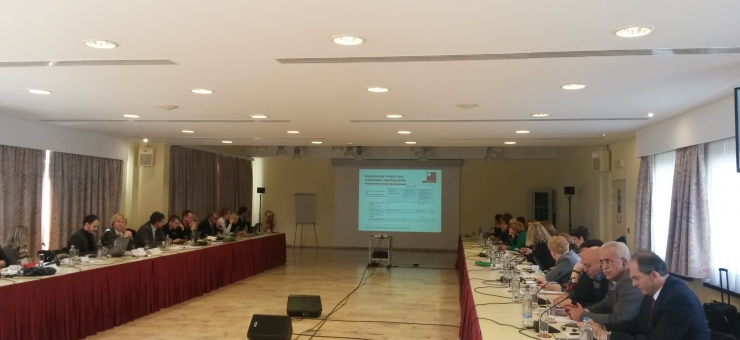News
Social partners in new and candidate EU countries need political will, trust and confidence to advance social dialogue

On the 12th February in Brussels, more than 50 people took part in the final conference of a joint UNI Europa and Eurocommerce project aimed at improving capacity building in Central and Eastern Europe as well as in EU candidate countries.
The meeting concluded a one-year project made of 4 regional workshops in respectively, Warsaw, Prague, Brussels and Istanbul where employers and trade union representatives from the countries concerned discussed social dialogue and industrial relations, challenges, obstacles and possible areas of cooperation.
The project has been carried out in cooperation with the Training Center of the ILO in Turin. A on line training tool on social dialogue was produced that will help trade unions and employers improving the knowledge and increse their participation and involvement in social dialogue both at national and European level. You can access the tool here: http://training.itcilo.org/delta/ACTEMP_SD/player.html
Academics for the University of Warsaw, the Central European Labour Institute, Eurofund, the ETUC and Business Europe, representatives from DG EMPL and DG Enlargement of the European Commission were among the keynote speakers of the conference.
The project clearly highlighted that unless a climate of improved political will, trust and confidence is established among social partners from these countries, no concrete progress will be made. Social partners must believe in social dialogue as a means of achieving results for the benefit of business and workers in commerce sector.
The recent changes in the labour codes at national level have certainly contributed to worsen the climate in which social dialogue takes place. The lack of sectoral social dialogue, the decrease in trade union membership and fragmented employers organisations have been recognized as the weakest link.
UNI Europa Commerce and Eurocommerce have put capacity building and social dialogue in CEE countries as a priority for their Social Dialogue Committee. They have also committed to improve the participation of those countries in the European Social dialogue and to monitor the implementation of EU social dialogue outcomes. They will use the results of this project to address recommendations to social partners at national level and to national and European politicians. A series of follow up actions were agreed which comprises the organization of ad hoc meetings with new MEPs from the countries concerned after the Spring Elections, round tables with targeted countries, enhanced cooperation with ETUC and Business Europe on the implementation of the EU social partners’ autonomous agreements .

